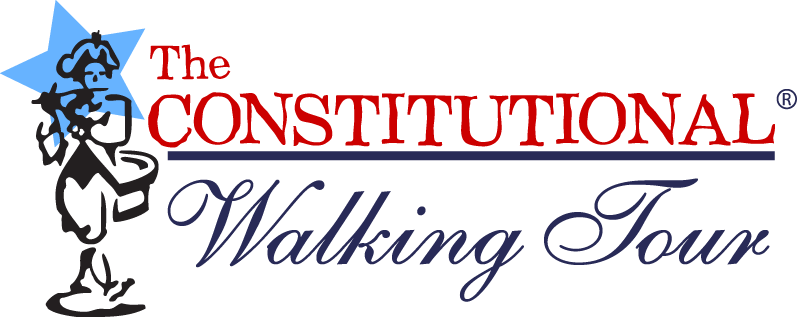Related Posts
- Buy Tickets for The Constitutional Walking Tour of Philadelphia – See 20+ Sites on a Primary Overview of Independence Park, including the Liberty Bell and Independence Hall
- Independence Hall
- The President's House
- St. George's United Methodist Church
- America's Founding Fathers
Birth: November 7, 1746
Death: February 13, 1818 (age 71)
Colony: Pennsylvania
Occupation: Minister
Significance: Founder of the Free African Society (1787); founded the first black church in Philadelphia, the African Episcopal Church of St. Thomas (1794)

Absalom Jones was a Founding Father of the United States of America. Jones was born into slavery in the Colony of Delaware in 1746. When Jones was sixteen, he was sold to a new owner who moved him to Philadelphia. After moving to Philadelphia, Jones was allowed to attend school and learned to read and write. Jones married Mary King in 1770 while both were still enslaved.
Jones and his wife resided in Philadelphia as the City became the epicenter of the movement for American Independence, but Jones was focussed on accumulating enough money to purchase his wife's freedom so that the two could start a family. By 1778, Jones had accumulated enough money to purchase Mary's freedom. With Mary's freedom secured, any children the two had together would be born free. In 1784, Jones was freed by his owner, as Pennsylvania was in the midst of ending slavery.
Free African Society and African Episcopal Church of St. Thomas
Jones had become interested the Methodist Episcopal Church while still enslaved, and after he gained his freedom, he decided to become a minister. Jones began preaching at St. George’s Methodist Episcopal Church, but Jones was restricted to services at off hours and within the Church commons instead of inside the Church itself due to his race. It was at St. George’s that Jones met fellow preacher Richard Allen.
In 1787, the same year that that the United States Constitution was being drafted, debated and signed at Independence Hall in Philadelphia, Jones and Allen organized and led a walkout of St. George’s over the poor treatment of black congregants. The two then started the Free African Society, a philanthropic organization that held nondenominational religious services and worked to provide aid for African Americans in Philadelphia. It is among the first organizations of its kind in the United States and quickly became the center of Philadelphia’s large African American community. It also gave rise to the first African American led churches in America.
With the assistance of the Free African Society, Jones founded the African Episcopal Church of St. Thomas in 1792, the first black church in Philadelphia and the first African Episcopal Church in the country. In 1794, Jones and the Free African Society helped Allen found Mother Bethel African Methodist Episcopal (A.M.E.) Church, the first African Methodist Episcopal Church in the nation.
As a Minister, Jones was very outspoken on the evils of slavery and became a leader within the anti-slavery movement. Taking advantage of living in Philadelphia, the city where the American federal government was assembled in the 1790s, Jones petitioned Congress numerous times. Jones argued that slavery was immoral and went against the founding ideals of the new nation and made impassioned pleas to end the slave trade and abolish the Fugitive Slave Act of 1793.

When a terrible Yellow Fever Outbreak struck Philadelphia in 1793 and devastated the city, Jones encouraged his congregants and members of the Free African Society to answer Mayor Matthew Clarkson's call for help. At the direction of Jones and Allen, members of the Free African Society served as nurses for the sick and helped to burry the dead. The number of African American volunteers during the Yellow Fever pandemic greatly outnumbered white volunteers. Asside from his strong convictions to help his fellow man, Jones hoped coming to the city's aid in its time of need would improve the social standing of African Americans in Philadelphia.
Jones' work had widespread impact on African American society at the beginning of this nation’s history. Jones had become a leader of the largest African American community in the nation. Jones died in Philadelphia in 1818 at the age of 71. Jones was interred in Eden Cemetery, a historic African American cemetery located just outside of Philadelphia, where many of the most prominent African American Philadelphians are buried. Today, Jones' remains are interred at Absolom Jones Chapel at The African Episcopal Church of St. Thomas in Philadelphia, the historic church founded by Jones himself.
Absalom Jones in Philadelphia
Absalom Jones lived in Philadelphia from 1762 until his death in 1818. Jones worked as a Minister at St. George's Methodist Church and later at the African Episcopal Church of St. Thomas which was located in Philadelphia at 5th and Locust Streets, just blocks from Independence Hall.
Today you can learn more about Absalom Jones at the African American Museum in Philadelphia, the first museum in America dedicated to African American history. There is also some information on Jones and Philadelphia's free African American community at the site of the President's House in Philadelphia. Independence Hall and the President's House are both stops on The Constitutional Walking Tour.



